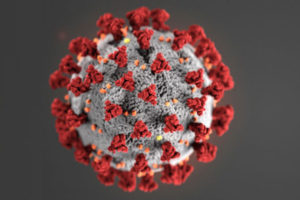Viable COVID-19 vaccines won’t halt economic damage from pandemic – Report
 A new report by the United Nations Conference on Trade and Development (UNCTAD) says despite the the high spirits occasioned by the discoveries of COVID-19 vaccines, the impact of the pandemic economies will continue to be felt for a long time, especially in poor countries.
A new report by the United Nations Conference on Trade and Development (UNCTAD) says despite the the high spirits occasioned by the discoveries of COVID-19 vaccines, the impact of the pandemic economies will continue to be felt for a long time, especially in poor countries.
The vaccines are reported to have more than 90 per cent potency, but according to the report titled: Impact of the COVID-19 Pandemic on Trade and Development: Transitioning to a New Normal, while there is growing confidence that an end to the health pandemic is in sight, a viable vaccine will not halt the spread of economic damage, which will be felt long into the future, especially by the poorest and most vulnerable.
According to the report copied to ghanabusinessnews.com, the global economy will contract by a staggering 4.3 per cent in 2020, it also warned that the crisis could send an additional 130 million people into extreme poverty.
Commenting, UNCTAD Secretary-General Mukhisa Kituyi said: “The COVID-19 pandemic has gravely wounded the world economy with serious consequences for everyone.
“Moving rapidly across borders, along the principal arteries of the global economy, the spread of the virus has benefited from the underlying interconnectedness – and frailties – of globalization, catapulting a global health crisis into a global economic shock that has hit the most vulnerable the hardest.”
The report among others, tracks the deepening impact of the virus on all areas of the world economy and maps how the crisis has affected global trade, investment, production, employment and, ultimately, individual livelihoods.
The impact of the pandemic, the report said, has been asymmetric and tilted towards the most vulnerable, both within and across countries, affecting disproportionately low-income households, migrants, informal workers and women, the report says.
“Global poverty is on the rise for the first time since the 1998 Asian financial crisis. In 1990, the global poverty rate was 35.9 per cent. By 2018 it had been curtailed to 8.6 per cent but has already inched up to 8.8 per cent this year and will likely rise throughout 2021,” the report states.
By Emmanuel K. Dogbevi
Copyright ©2020 by Creative Imaginations Publicity
All rights reserved. This article or any portion thereof may not be reproduced or used in any manner whatsoever without the express written permission of the publisher except for the use of brief quotations in reviews.
